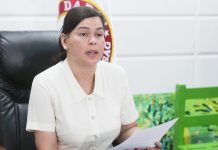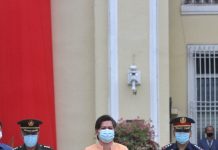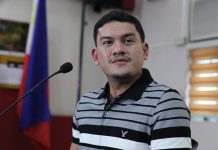Banana growers and exporters last week lamented the published statement of the Department of Health headed by Sec. Francisco Duque III recommending the banning of the industry’s 40-year old practice of aerial spraying to combat infestations. The group’s reaction was made through the Pilipino Banana Growers and Exporters Association (PBGEA) upon reading press releases on the DOH statement circulated in the local media by foreign-funded detractors of the industry.
“The stand is effeminate because it clearly shows that the DOH has bowed to pressures from disparate groups, rather than one based on conviction as a result of ethical scientific investigation and verification of anecdotal accounts,” PBGEA spokesman Anthony B. Sasin told local reporters.
Sasin said the statement of Duque and company relied heavily on the so-called Camocaan (Hagonoy) health assessment, a questionable study which has been rejected by impartial researchers as “inconsistent,” “inadequate,” and “not enough to support a recommendation to ban aerial spraying,” among other negative descriptions.
He said two peer reviews made on the study by the University of the Philippines and the World Health Organization found the study “inconclusive; it has loopholes; the data is limited.”
He said the Inter-Agency Committee on Environmental Health (IACEH) composed of various government agencies and NGO representatives presided by the DOH secretary voted down the proposal to ban aerial spraying.
However, Sasin charged that the DOH leadership had ignored the peer reviews’ negative findings as it is influenced by advisers that include personalities identified with the movement to eliminate chemicals from agriculture in favor organic farming.
The PBGEA spokesman himself earlier branded the Camocaan study as “rigged,”and “deceptive,” which has been designed to give credence to the claims of one Dr. Romeo Quijano that sitio Camoocan was poisoned due to aerial spraying of low-dose fungicide.
“While the DOH stand saddens, it did not really come as a surprise to us,” Sasin said. “Early on, we realized that we were in for a raw deal when we noticed that those surrounding Secretary Duque were the same personalities who occupied high positions in foreign-funded anti-pesticide organizations such as the Pesticide Action Nature-Asia Pacific headed in the country by Dr. Quijano, a colleague of most of 11 researchers who conducted the controversial Camocaan health assessment.
He cited as example Dr. Lyn Crisanta R. Panganiban who reportedly cited the study proposal. Dr. Panganiban sits in the board of directors of PAN-Asia with Dr. Quijano.
“We have evidence which finally established that Dr. Allan Dionisio, lead investigator in the Camocaan research, and his co-researchers undertook the research with strong bias against pesticide, used environmental samples of questionable integrity and fabricated illnesses among residents,” he said. “They could not even present the alleged victims of poisioning to health clinics for treatment, “ Sasin said.
If the DOH and its researchers, who are mostly physicians, are really for the health of the people, “why did it take them three years to hide the study and to refer the sick to the health clinic for treatment?,” he asked.
On the other hand, PBGEA president Stephen Antig called on all bishops and the Church to verify the allegations of Quijano, Dionisio and company.
“We welcome them all to inspect our operation, check on the flagmen’s record for the last 40 years to determine how much care we have for them and the workers and communities adjacent to our farms,” Antig said.
Antig added that PBGEA’s 30 member companies and thousands of growers now look to the courts and President Gloria Macapagal Arroyo for justice and fairness on this issue.
He maintained that aerial spraying of low-dose fungicide is not hazardous, and the industry has been following international safety standards in such a practice. [PR]
0 Comments
Oldest






